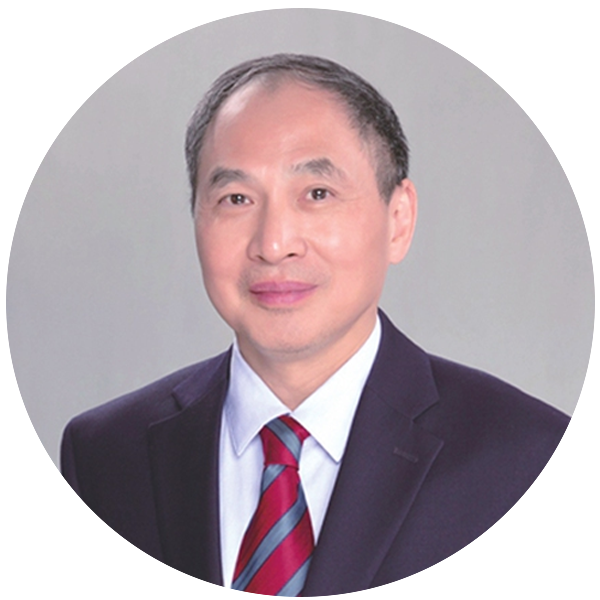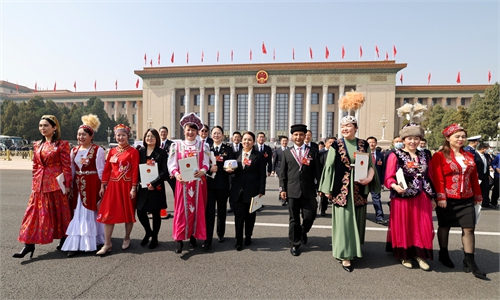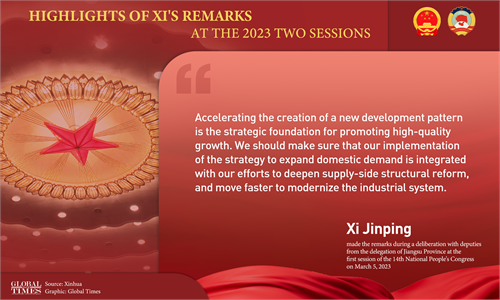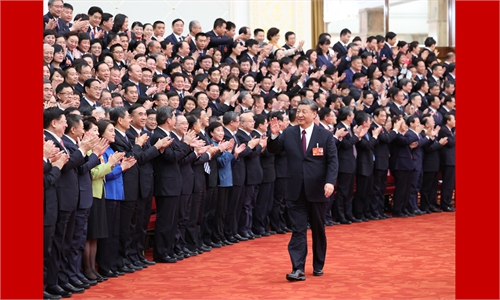Leap from applied technology to innovative technology key to realizing high-quality development: Zheng Yongnian
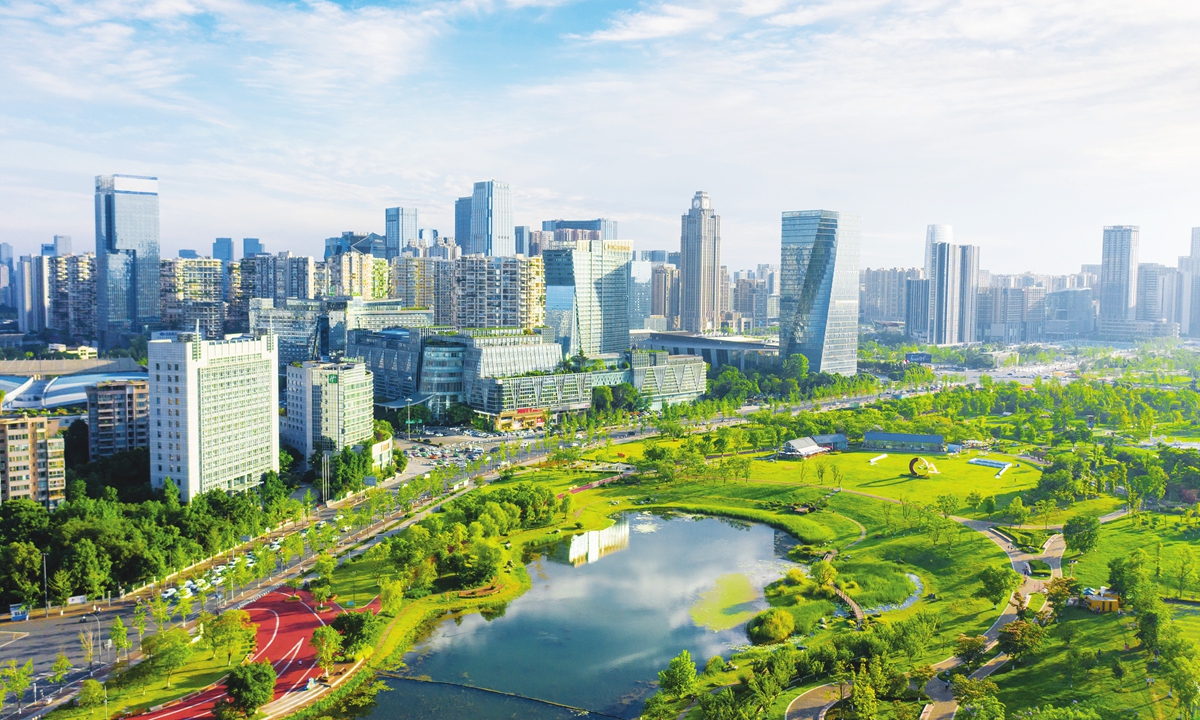
City view of Chengdu, Southwest China's Sichuan Province. Photo: VCG
Editor's Note:The two sessions, one of China's most important annual political events, are an important window for the outside world to understand China's development achievements, plans, governance philosophy, diplomatic concepts and global initiatives. Through this window, international observers closely watch China's moves and recognize China's development.
"I have full confidence in the new government. They understand both China and the world, and they have a combination of Chinese and world views," Zheng Yongnian (Zheng), professor at the Chinese University of Hong Kong, Shenzhen, and president of The Institute for International Affairs, Qianhai, told Global Times (GT) reporter Wang Wenwen in an interview.
This is the ninth interview of this series over the two sessions.
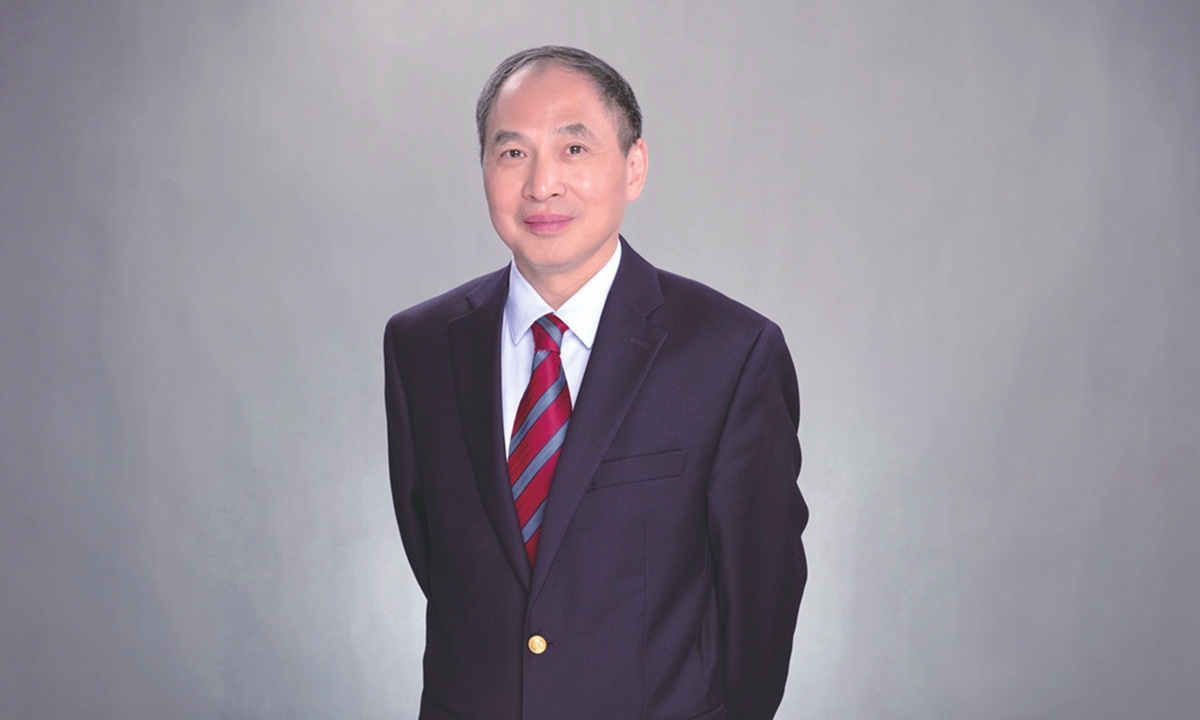
Zheng Yongnian Photo: Courtesy of Zheng
GT: What impressed you most about this year's two sessions? What policies and signals make you feel optimistic about the future development of China?
Zheng: From the words of Premier Li Qiang at the press conference, it can be seen that China's leaders are not thinking from their own standpoint, but from the interests of private entrepreneurs, state-owned enterprises and ordinary people. Both General Secretary Xi Jinping of the CPC Central Committee and the Premier Li have grassroots experience. They understand the history of China and recognize the people as the main subject of society, the entrepreneurs as the subject of the economy, and the officials as the subject of the government. The "people-centered" strategy is not a slogan. They will introduce proper policy support according to the demands of different groups. For example, when putting the needs of enterprises above their own, the policy is bound to be a success with a social basis. Indeed, after the outbreak of the COVID-19 epidemic, China's policy was proactively formulated based on social demands, especially the utilization and adjustment of the epidemic prevention and control measures. It was not a passive and reactive change as some foreign media said. This is an effective government, a service-oriented government.
GT: What do you think of the State Council institutional reform approved at the two sessions?
Zheng: This reform has boosted the enthusiasm of the central and local governments and the whole of society. It takes advantage of China's institutional strengths. For example, a central science and technology commission will be established to beef up the CPC Central Committee's centralized and unified leadership over science and technology-related work. The establishment of this commission reflects the importance that the central government attaches to the development of science and technology, but the West only sees this as "centralization." In fact, it includes decentralization, as some authority is devolved to the Ministry of Agriculture and other ministries and departments, so that these ministries and departments also have the power.
So I have full confidence in the new government. They understand both China and the world.
GT: "High-quality development" is a buzzword in 2023. At the first session of the 14th National People's Congress, Chinese President Xi Jinping stressed that high-quality development is the first and foremost task in building a modern socialist country in all respects. How do you understand high-quality development? What are the challenges in China's internal and external environment to achieve high-quality development?
Zheng: This is the first year to fully implement the guiding principles of the 20th CPC National Congress, and there are actually many discussions in the report about science and innovation, agricultural modernization, institutional openness of regulations, rules, standards and management. These are all proposed for high-quality development. Local governments should figure out what high-quality development means and how to pursue it. If GDP rises but not to benefit people's livelihoods, and the total amount of social wealth is not increased, it is not high-quality development.
We have the goal of basically realizing socialist modernization by 2035 and building China into a great modern socialist country that is prosperous, strong, democratic, culturally advanced, harmonious, and beautiful by the middle of this century. The fundamental technology and innovation mentioned by President Xi are very important. Here, I would like to raise the concept of the "middle technology trap." To achieve high-quality development, overcoming the middle-technology trap is key. If we study how the developed economies were upgraded from less-developed to developed economies, how Japan and the Four Asian Tigers surmounted the middle-income trap, and how many economies in Asia and Latin America have been caught in the middle-income trap for a long time, we can find that technological progress is a crucial factor affecting high-quality development. Science and technology are the primary productive forces.
The external challenges faced by China are the US' cut-throat competition with China and the systemic decoupling created by the US and the West. For example, Japan and the Four Asian Tigers got rid of the middle-income trap and became developed economies thanks to the global technology market. But in the trend of deglobalization, China is currently in a disadvantageous position in the global market.
As to the internal challenge, our internal modernization and globalization reinforced each other after the reform and opening-up. At that time, the Western technology market was open to us, although the West never gave us its most advanced technology. The challenge now is to shift from the previously applied technology to innovative technology. Without innovation, we will be choked by others.
From a historical point of view, we don't need to be too pessimistic. A country's development certainly starts from applied technology. The UK was the first industrialized country; the US, France and Germany adopted British technology in the early days, Japan followed the Western technology of the US, and South Korea followed Japanese technology. After China's reform and opening-up, it applied the technology of these countries and formed a complete industrial system, which is now just facing the problem of upgrading.
GT: Foreign Minister Qin Gang said during a press conference on March 7 that the so-called "wolf warrior diplomacy" is a narrative trap. In China's diplomacy, there is no shortage of goodwill and kindness, but if faced with jackals and wolves, Chinese diplomats would have no choice but to confront them head-on and protect our motherland, said Qin. In the diplomatic and public opinion arenas, what kind of response should China give with Chinese wisdom?
Zheng: If there is "wolf warrior diplomacy" conducted by China, as the West calls it, it can only be reactive. A country's diplomacy naturally has soft and hard aspects. If China is seen as what the West calls a "wolf," then they don't understand the role China is playing in the international community. Recently, China has brokered a peace deal between Saudi Arabia and Iran. Wang Yi, a member of the Political Bureau of the CPC Central Committee and director of the Office of the Foreign Affairs Commission of the CPC Central Committee, said it is a victory for peace, which is precise. China pursues peace and development as its diplomacy values. The US and Europe have been offering weapons to Ukraine, and the US is even clamoring to prolong the war to weaken Russia. Then look at the issue of the South China Sea. The US has been stirring up conflicts, but has China ever had open conflicts with Southeast Asian countries as the US has wished?
China must safeguard its core national interests, but we don't wage war, and we try to seek political and diplomatic solutions, not warlike solutions as the West does. Effective diplomacy is to have both soft and hard sides.
GT: The China-US relationship is one of the focuses at the foreign minister's press conference. Against the backdrop of a high-level bipartisan consensus in the US on containing China, US-China relations keep deteriorating. Can China and the US avoid negative interactions?
Zheng: In its relations with the US, China should maintain "fighting without breaking" and "fighting but not war." The US can't unilaterally determine the relationship between the two countries. China and the US are both inseparable part of the global economy. Even though their direct contact decreased, the indirect interaction would inevitably increase, because many countries are strengthening ties with China and the US. China will not clash with the US as the US wishes. China will not be led by the nose by the US.
The bipartisan consensus on China is out of an American-style political logic, but it doesn't fit into the logic of the market. Capital needs markets, and Chinese and American capital needs to keep in contact with the world. On the technology side, as long as China doesn't close its doors, technology, especially technological ideas, will always be fluid.
China will not engage in vicious competition with the US or an arms race. It will modernize the military at its own pace and will not concede on its core interests. Taiwan [regional] leader Tsai Ing-wen reportedly will meet with US House Speaker Kevin McCarthy in the US next month. In fact, a few political figures cannot change the structure of today's international politics. China should be determined and confident.
